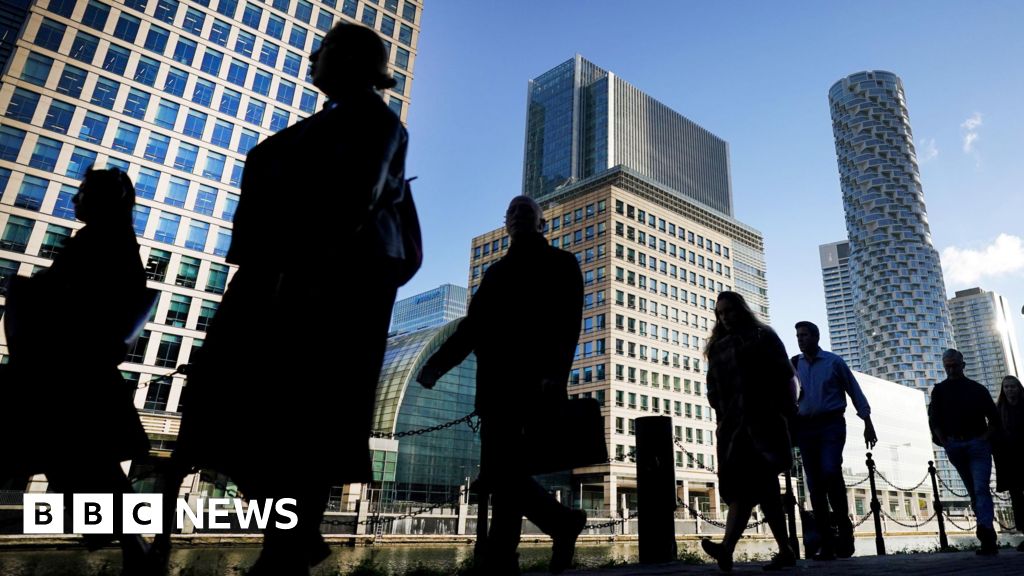ARTICLE AD BOX
Image source, Getty Images
Energy bills will rise to reflect soaring wholesale energy prices, the energy regulator has warned.
A price cap limits the impact of rising energy costs for customers, but Ofgem said this would increase.
Chief executive Jonathan Brearley said the cap was "designed to reflect fair costs and therefore will need to adjust over time".
Nine UK energy suppliers collapsed last month and Mr Brearley said more could follow.
"Given the continued volatility in the market, it is likely more suppliers will exit the market," he told a conference organised by Energy UK.
Natural gas prices are at record highs as economies around the world begin to recover from the Covid crisis.
As a result, firms are running into trouble because they have agreed to sell gas at less than the price it now costs them to buy it.
More than 1.7 million customers saw their energy provider go bust in September.
They have already seen annual bill increases of hundreds of pounds when they moved to a new provider and away from whichever low-rate fixed deal their supplier had offered.
Ofgem's advice to those affected is that they should wait for the regulator to appoint a new supplier and refrain from switching in the meantime.
It says customers can rely on their energy supply as normal.
The warning from Ofgem's Mr Brearley came after analysts Cornwall Insight predicted that household energy bills could rise by hundreds of pounds next year.
They said the energy price cap, which works by limiting how much firms can charge domestic customers for a unit of gas, could soar by £400 in the spring to about £1,660.
That is about 30% higher than the record £1,277 level for the cap set for winter 2021-22, which began at the start of October.
"With wholesale gas and electricity prices continuing to reach new records, successive supplier exits during September 2021 and a new level for the default tariff cap, the Great British energy market remains on edge for fresh volatility and further consolidation," said Craig Lowrey, senior consultant at Cornwall Insight.
Meanwhile, Business Secretary Kwasi Kwarteng has said that by decarbonising the UK's power supply, the country will protect customers from volatile fossil fuel prices.
"The UK so far, as many of you know, has made great progress in diversifying our energy mix. But we are still very dependent, perhaps too dependent, on fossil fuels and their volatile prices," he told the Energy UK conference.
He said that the government's recent pledge to decarbonise the electricity grid by 2035 - 15 years ahead of the previous target - would help.
"Our homes and businesses will be powered by affordable, clean and secure electricity generated here in the UK, for people in the UK," Mr Kwarteng said.
Image source, Getty Images
The Energy Shop - a price comparison site - warned people to prepare themselves for even greater increases in household bills.
It said that the next increase in the price cap, due to come in from 1 April 2022, could be £500 or even higher.
Founder Joe Malinowski warned: "If things don't settle down soon, increases of £600, £700 or even £800 cannot be ruled out."
If you feel powerless against international business and politics when watching your domestic energy bill go up, you are in good company.
Normally, customers are urged to get active, search and switch to save money - but not now.
Until recently, the energy price cap was a backstop, protecting the vulnerable. Now it is the most competitive tariff available.
The cap is shielding households from the wild fluctuation in prices seen on the wholesale markets, but that is only a crumb of comfort when bills and prices across the board are still expected to see a sharp increase.
So for now, experts simply advise customers to find ways to save energy, brace themselves and budget for bigger bills. Wrap up for a financial chill that could last longer than the winter.
The energy price cap sets the maximum price suppliers in England, Wales and Scotland can charge customers on a standard - or default - tariff.
That includes the fixed daily amount customers pay, plus the price per unit they pay for electricity and gas.
The cap was increased on 1 October, with about 15 million households facing a 12% rise in energy bills, the biggest jump, to the highest amount, seen since the backstop was introduced in January 2019.
Those on standard tariffs, with typical household levels of energy use, saw an increase of £139 - from £1,138 to £1,277 a year.
Prepayment meter customers with average energy use saw a £153 increase.
That is a far cry from a year previously when on 1 October 2020, the energy price cap was cut by £84, to £1,042.
Will you be affected by rising energy prices? Share your experiences by emailing haveyoursay@bbc.co.uk.
Please include a contact number if you are willing to speak to a BBC journalist. You can also get in touch in the following ways:
If you are reading this page and can't see the form you will need to visit the mobile version of the BBC website to submit your question or comment or you can email us at HaveYourSay@bbc.co.uk. Please include your name, age and location with any submission.

 3 years ago
89
3 years ago
89








 English (US) ·
English (US) ·